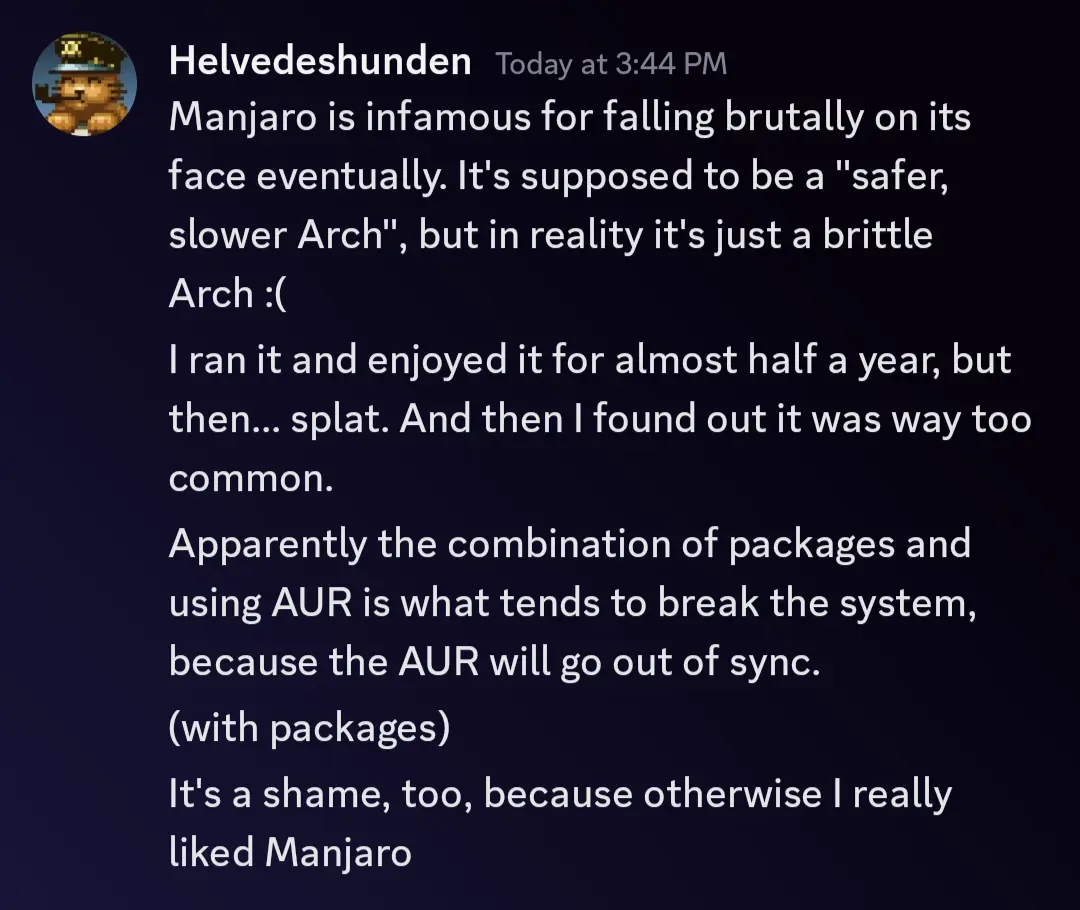this post was submitted on 21 Dec 2023
243 points (94.2% liked)
Linux
49081 readers
456 users here now
From Wikipedia, the free encyclopedia
Linux is a family of open source Unix-like operating systems based on the Linux kernel, an operating system kernel first released on September 17, 1991 by Linus Torvalds. Linux is typically packaged in a Linux distribution (or distro for short).
Distributions include the Linux kernel and supporting system software and libraries, many of which are provided by the GNU Project. Many Linux distributions use the word "Linux" in their name, but the Free Software Foundation uses the name GNU/Linux to emphasize the importance of GNU software, causing some controversy.
Rules
- Posts must be relevant to operating systems running the Linux kernel. GNU/Linux or otherwise.
- No misinformation
- No NSFW content
- No hate speech, bigotry, etc
Related Communities
Community icon by Alpár-Etele Méder, licensed under CC BY 3.0
founded 5 years ago
MODERATORS
you are viewing a single comment's thread
view the rest of the comments
view the rest of the comments

Apparently he still believes other Linux desktop distros don't randomly brick themselves with updates every six months.
He's in for. A treat.
Well they don't.
My arch install doesn't brick itself by itself. Sometimes an update needs some manual intervention but that doesn't brick it.
They don't. I've been on the same Debian install on laptop and desktop for years. It'll make some odd decisions with packages sometimes, but it hasn't bricked.
I don't have hard data, but you don't see these kinds of posts about Debian, Mint, Ubuntu or Fedora.
That's why you use flatpaks and/or nix